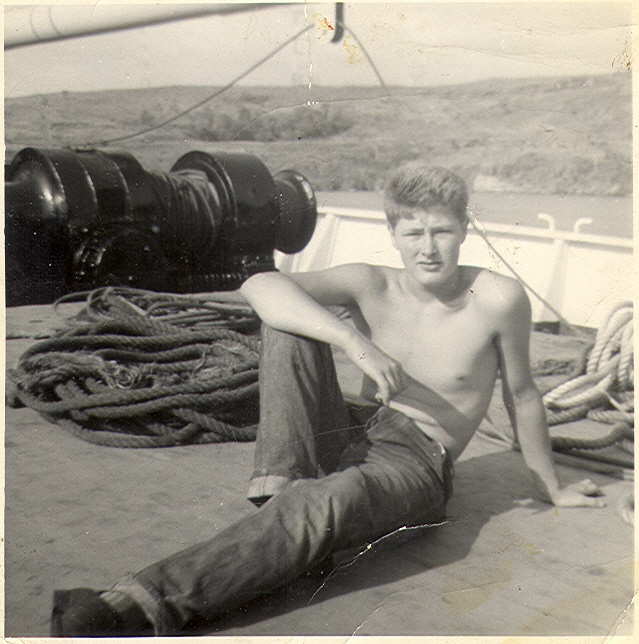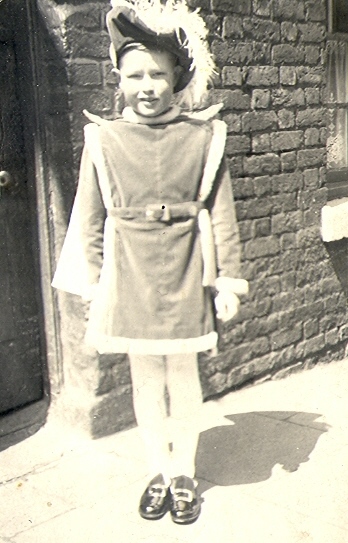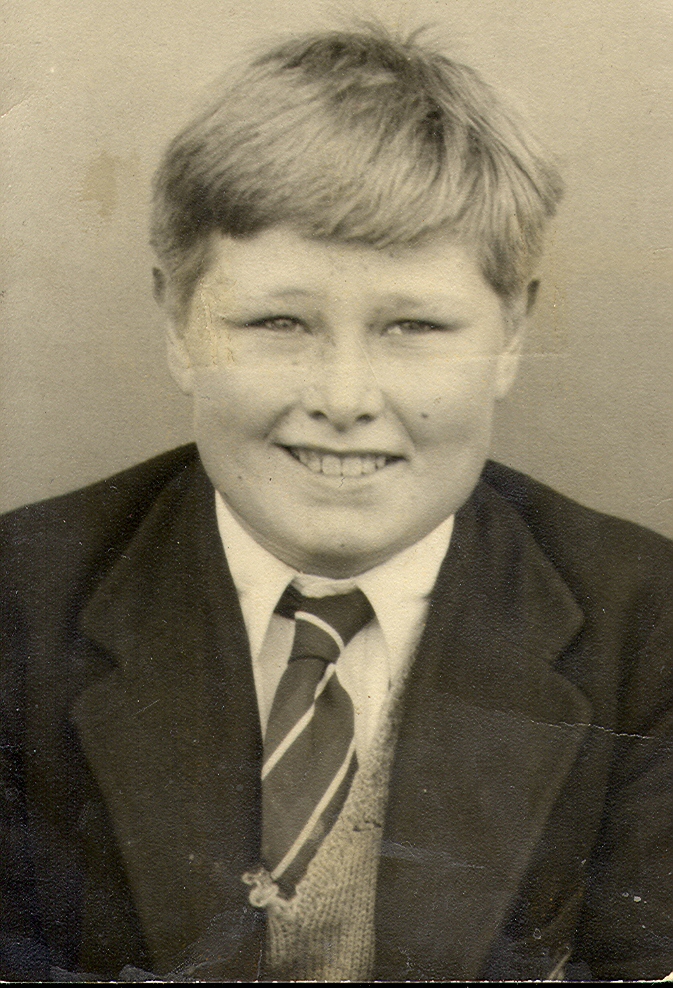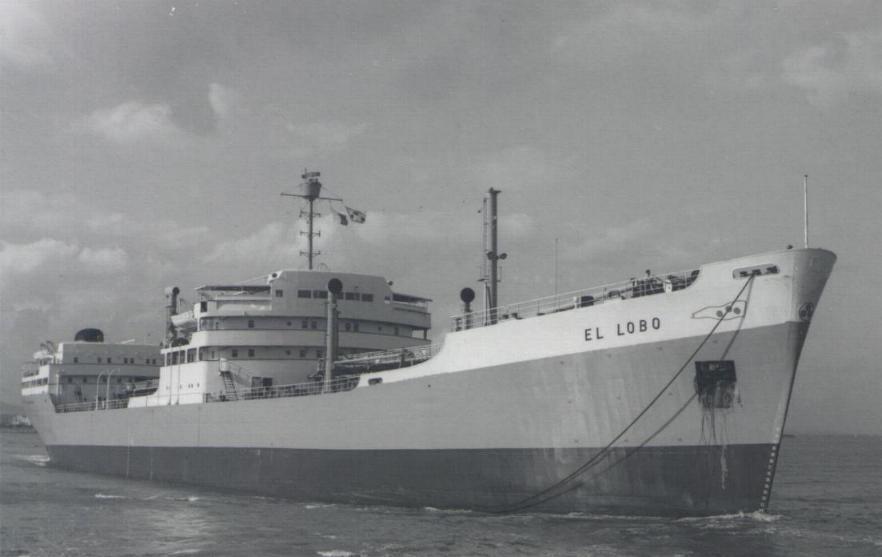Roy Stanley Barnard


Where did your parent's work? What did they do?
My mother was in iron and my father was in steel, my mother use to iron and my father use to steal... haha.
My father was a captin on a small barge that use to go to Elsmere port just outside of Liverpool through to the Manchester ship canal and my mother worked in a cake shop. We had very little money, though, because unfortunately for us my father was an alcoholic. Most of the money was either gambled away or spent on alcohol.
Where did you live?
We were raised in a house that we use to rent. It was a two bedroom. Two rooms downstairs and two rooms upstairs. The bathroom was outside. You had to go down the yard to get to it. There was no heating or even hot water. There were also gaps on the bathroom door and as you can imagine it was very cold in the winter. We didn't have toilet paper so we had to use newspaper. All things considered we were fortunate with the whole bathroom situation. The houses on Cooper Street had to share with at least five other families, whereas we had our own. Our mother gave us all our weekly baths on Sunday in an old tin bathtub. We had an old boiler that mother use to wash clothes in. Every Sunday she would heat water up and also in pots and pans on the stove then tip into the tin bath and then put cold water in and then we three would climb in. I was sleeping in the same bed with my three brothers until I was 13, they were 11 and 10. I was born right after WWII and we didn't have blankets, we used my dad and uncle's military coats from the Navy and Army. Then, we moved to Norlean Creston which was a three bedroom where I had my own room and my own bed and there was a bathroom inside.
Did you have central heating and running water?
No central heating, the house had four fire places. It was an old house built in the 1920's I believe. They were called Tersse houses and it was coal. My father built a lean-to on the house where they put a sink and cold running water. The coal used to be delivered into the backyard and we would start the fires with paper and wood and put coal on top. In the winter and ever the summer it rained a lot so the coal got wet.
What was a typical day as a young boy?
It was either school or just playing, we didn't have T.V. until 1955. We had the radio or we played in the street because there wasn't that many cars. We lived just off the main high street and we were very close to the Manchester Ship Canal. We would go down to what we called the ferry hut and during the summer we would go and swim in the ferry hut. We were not supposed to be down there because it belonged to the Manchester ship canal and they had railings and bars and we would pry the bars apart with an old car jack and climb through. It was the only bit of sand that we knew. And for tea my mother would send me across the street to get my father's tea, one egg and two slices of bacon. That is what he would eat.
I know you were born one year after WWII, but did the war have any effect on you?
Yes. After WWII, England did not have as many ships. During the war alot were sunk by U-boats or blown up. After the war, certain things took preference, like rebuilding. England is an island everything is imported. I remember as a young boy that we had ration books. I think I was about 6 years old when the rations ended.

Did you take vacations?
Yes, We went to Rhyl
in North Wales. We stayed in a caravan or what you call an R.V. it was only a very small
caravan. And i was thinking my mother did not have a vacation all she did was change locations,
picking up and cleaning and cooking, we didn't go to restaurants, we had sandwiches and we would
go to the seaside and sit on the beach and play with shovels and plastic buckets and we would
go to the fair and spend a little bit of money.
How far did you go in school?
I graduated from Grange Secondary Modern. My Headmaster used to get very annoyed at me when I was late to school because we were so close. He would say "Barnard, all you have to do is roll out of bed and you're in school! How come you're late?" We left High School at 15, I graduated in 1961. Everyone went to school except for the gypsies and the ones who worked on the top canal. After High School I went to College for about three months. I was smart practically but technically I wasn't. When I was in school in the Secondary Modern I took cooking instead of metal work.

What did you do after school?
When I left college I went to Liverpool Airport as a trainee chef, being the smart 15 year old that I was I told the Head Chef what to do one too many times and after that I went and worked at the Royal Restaurant but my life was such that although it was only 15 miles away it was hard to get to. We didn't have many cars we used public transportation like a bus or train. I would go early in the morning and get home very late at night so late that when the train would pull in the last bus would be leaving the station so I would walk 3 miles to where I lived, so I started staying at my Grandma's house about a 1/2 mile away. I earned five pounds a week which was not enough... with all the travel it was not enough. I left and went into theMerhant Navy. My parents were ok until I went to leave to go on my first ship the El Lobo. Then it was like the tango going down the street my mother had a hold of my arm pulling me back and father was holding her pulling her back. The El Lobo was a tanker into Elsmer port into Venezuela.
My Sixteenth birthday was in the Pacfic off the coast of Equador. I was in the Merchant Navy for
3 years. Most of my trips were into South America and Europe. I was in the Panama Canal
when Kennedy was killed. I was in Panama when they had anuprising over the American
flag. It never
affected us because we stayed on the ship. I have been to Columbia, Peru, Chile, Holland, Belgium,
Portugal, Ireland, Scottland, the Bahamas and Argentina.

Why did you get out of the Merchant Navy?
I met my firt wife, who is now my ex-wife, when I was on the Empire Nordac. So love conquered all, I was young, but at the same time at 18 I had been alot of places. I was married to Linda in 1966. I was 19 1/2 and by 20 we had our first child.
How did you support your family?
I was a truck driver on and off between having my own business. We had a Ladies and Children's Wear shop and then we had two chip shops. Linda worked the Ladies and Children's Wear shop while I was a truck driver and then we decided to work together at the first chip shop.
Why did you come to the United States?
I came to the United States in 1980, after my divorce. The divorce was cruel and bitter and very disturbing. I wanted to take myself out of that situation.
Where did you enter the U.S. at?
I came in 1978 to do an exploratory trip, because I had relatives here to stay with. I liked it. I moved in with my cousin in New York in 1980. But with anything else it is really no different then anywhere else in the world. You still work and you still pay taxes like anywhere else.
What did you bring with you when you left England?
I had a suit case and $3,000. That was it.
What did you do when you came to the United States?
When I got my green card I went back to work, back to cleaning. I was cleaning pots and pans for Host International. Then they put me in a liquor cage, which was very silly of them. I would pack the beer and the liquor for the plane. We would put away as much of the liquor as we could and then we put the rest of it on the plane. And they used to lock us in and I would say " Thank you! How much do I owe you?"
How much did you make?
I think it was something like $5 in 1980.
Were you making more money in England?
It depends on the exchange rate at the time, as a truck driver I was making pretty good money. When I came here I was 30 years old so it was like starting from the bottom of the ladder... starting all over again.
Career?
I went to Dallas to get a job with American Airlines in 1981. Reagan fired the air traffic controllers and I had only worked there for 85 days. Back then, you needed 90 days to get recall rights. So, I was on the street for two years when I eventually went back to American as a new hire in 1983.
When did you meet my mom?
When i was working at Sky Chiefs in St. Louis some friends were having a Christmas party December 20,1980 and basically we have been together ever since 1980. We were married in 1982 and you were born in 1984.
Did you stay in Dallas?
No, we moved several times; Chiago, San Diego, Tennesse, and back to St. Louis.
How long did you work for American?
I worked for American for over 20 years and then I was laid off with the re-shuffel of TWA going bankrupt and American taking over shortly after 9/11 happened. Unfortunately for this Country the terrorists decided to send these jets as weapons so with the terrorism travel wasn't as prevalent as it once was. Security became very tight and the whole situation was that American down-sized.
What do you do now?
I retired. So now I drive a school bus. I like driving like I did here and in England and I like kids... I used to be one.
Differences between here and England?
England is much more laid back. Like anywhere in the world if you want to push and work opportunity is there. England is more of a class society and it is harder to push into that class. We are a classless society, opportunity is easier. The more money you have the better the lifestyle. I have had a lot of success in the United States. I have afforded new cars and houses and on the same token I worked long hard hours 6, 7 days a week sometimes.
Is there anything else?
It's very hard to explain the different cultures. There are people here who are very poor and live in ghettos which is basicly what I lived in the 1940's and 1950's. We didn't know any better. It is only as you get older and you work in life. That by working you can achieve.
Merchant Navy Copyright © 2003-2005 Brian L Probetts (www.merchant-navy.net) All rights Reserved. On this site you can look up people who were in the Merchant Navy and the ships they were on.
Manchester ship canal. This is where my Grandad worked and my dad played as a child. This site shows pictures of the canal.
Panama Canal
Terms under which this service is provided to you. This is an article about the uprising over the American Flag. My dad was in the panama canal when one of the uprisings happened. (© 2001 Cable News Network. All Rights Reserved.)
Ration books
The Second World War saw the disappearance from shops of everything but the necessities. Ration books were issued and this site shows what was rationed. Copyright © 2002 Peter N. Risbey.
Rhyl This site gives you a look at something similar to what my dad stayed in when he vacationed. Holiday Notice Board © 2001-2005 Brightbell Web Design Warrington, Cheshire.
Widness Lancashire England This is a map of England. My father lived just outside of Manchester.
A. Brachwitz2/27/02